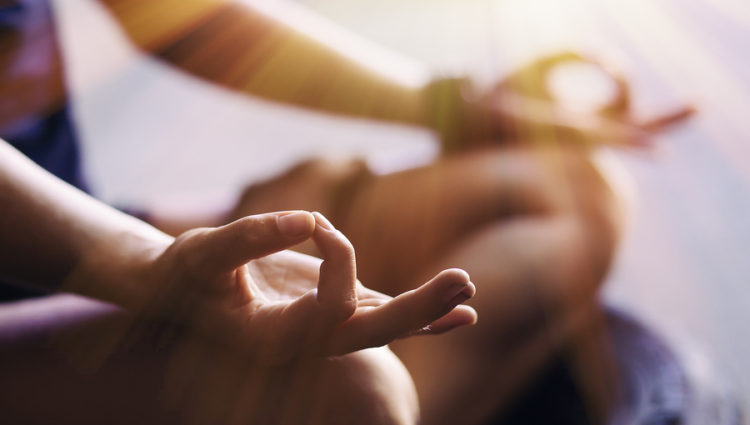 About a year ago, I became interested in trying meditation with the hopes that it might help quiet my busy and anxious mind. After scouring every social media outlet for information about meditation, listening to podcasts from meditation centers around the country, and reading books about starting a practice — essentially doing everything except actually meditating — I decided to give it a try.
About a year ago, I became interested in trying meditation with the hopes that it might help quiet my busy and anxious mind. After scouring every social media outlet for information about meditation, listening to podcasts from meditation centers around the country, and reading books about starting a practice — essentially doing everything except actually meditating — I decided to give it a try.
I started with a guided meditation, a recording meant to help focus your mind through visualization or affirmations. As the calm quiet voice asked me to imagine myself lying on a beach in the warm sand, every muscle in my body completely relaxing, the sound of the waves lapping on the shore, I began to laugh uncontrollably. Behind the sound of the soothing voice and recording of gentle waves, the draft from my window chilled the room and I could hear my husband in the kitchen clanging plates together as he unloaded the dishwasher. I didn’t think I could feel any farther away from the ocean. The perfectionist in me was frustrated — I couldn’t even meditate right. After a few days, when I finally pushed my sense of defeat far enough down, I decided to try again. I planned to get up before my husband was awake, wear extra warm clothing, and ditch the guide so I could try to quiet my mind on my own.
RELATED: How a Self-Care Routine Changed My Life
All of the articles I read suggested starting with a small amount of time, like two to five minutes, and gradually extending your practice from there. “Two minutes?” I thought with arrogance, “Anyone can do two minutes.” In all of my boldness, I set a timer for 10 minutes, closed my eyes, and tried to focus on my breath. Almost immediately, thoughts began crashing in — thoughts about my to-do list for the day, thoughts about whether or not I should put cream in my coffee, thoughts about what I would look like if I cut my hair — thoughts about anything and everything that could fill the silence. After what seemed like an absurd length of time, I decided to open my eyes and peek at the timer only to discover that just 45 seconds had passed. The thought of nine more minutes seemed excruciating so I stopped the timer, got up, and once again accepted my defeat.
A couple of days later, I came back to the practice with more realistic expectations. Although I fought with my mind for the majority of the two minutes, I finished it. I decided to set aside a time and space for meditating daily and most importantly, I kept coming back to the practice even when it was hard or awkward or inconvenient. Eventually, I found that I had fewer and less intrusive thoughts during my meditation sessions. I learned how to acknowledge a thought and then let it go instead of following it down a stream of consciousness rabbit-hole that would keep me distracted. I learned to tolerate and eventually love the stillness.
RELATED: More Than a Workout: 5 Ways to Practice Healthy Living in Your 20s
I gradually extended the time of my practice, and after several weeks I was able to sit for 10 minutes each morning and 10 minutes each evening. After remaining committed to my practice for almost a year, I now sit for 20 minutes in the morning and 20 minutes in the evening, I do an hour-long session in a floatation tank at a spa near my home — a tub of warm, heavily salted water inside a dark and silent room that you float in — every other week, and throughout my day I find myself frequently pausing to close my eyes, take a few deep breaths, and quiet my mind.
The effect of meditation on my life has been profound. I find that, in general, my mind is a lot quieter throughout the day, it’s easier for me to stay present in my experiences, my circumstances no longer dictate my emotions, I sleep better, and I am overall a more content, peaceful, and thoughtful person than before I started meditating. Some days are still hard, sometimes I skip sessions, and I still regularly battle with my mind. What I’ve come to accept is that, like most things in life, a commitment to do my best, to give myself room to make mistakes without feeling guilty or ashamed, and to find balance is more important than having hard and fast expectations about what my meditation practice should look like. In the end, the okay method I am able to follow is far better than the perfect method that I will quit.